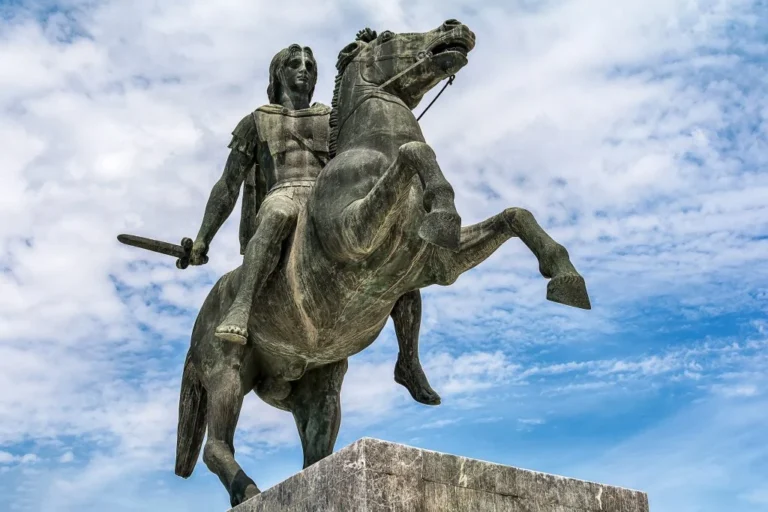Imagine a man whose ambition could ignite empires and whose legacy defies time—Alexander the Great. Could there be hidden truths behind his dazzling victories and mysterious end? What are they hiding in the shadows of history? In this article, we dive deep into the origins, evidence, and theories surrounding one of history’s most compelling figures.
Background Information & Origins
Alexander III of Macedon, better known as Alexander the Great, was born in 356 BC into royalty. Raised amid the clash of cultures and conquests, his formative years were marked by rigorous education under Aristotle and the turbulent political landscape of ancient Greece. His early life set the stage for an unprecedented military campaign that would change the world.
- Historical Context:
Alexander’s era was one of constant warfare, cultural exchange, and political intrigue. His conquests stretched from Greece to India, forging one of the largest empires of the ancient world. - Early Influences:
His upbringing, steeped in philosophy, politics, and warfare, ignited a passion that would later redefine global history.
Key Evidence & Theories
Historians and archaeologists have unearthed clues about Alexander’s life and the mysteries that continue to intrigue scholars today. Here are some key points:
- Unexplained Disappearances: Several historical records hint at mysterious gaps in his military campaigns.
- Mysterious Death: The cause of Alexander’s untimely demise remains hotly debated—was it poisoning, illness, or a conspiracy?
- Hidden Treasures: Ancient texts reference lost artifacts that might reveal the true extent of his power and influence.
- Cultural Fusion: His empire not only merged territories but also ideologies, leading to a blend of Greek and Eastern cultures that persists today.
A Shocking Discovery or Twist
Recent archaeological findings in the heart of ancient Babylon have revealed an inscription that challenges long-held beliefs about Alexander’s lineage. Could this be true—that Alexander’s true origins might have been even more complex than historians imagined? This twist not only adds fuel to ongoing debates but also invites us to reconsider the man behind the myth.
Possible Explanations
The astonishing discovery of the Babylonian inscription has sparked a whirlwind of theories. While some scholars lean towards the mysterious and almost mythical interpretations, others offer rational explanations:
Mysterious Theories
- Divine Lineage: Some ancient texts suggest that Alexander was not entirely mortal, hinting at a divine connection that set him apart from ordinary men.
- Secret Societies: There are whispers that a covert group preserved this secret, guarding it as a truth too dangerous to reveal.
Rational Theories
- Political Propaganda: Others argue that these theories were fueled by rival factions aiming to discredit his achievements and undermine his empire.
- Misinterpretation of Evidence: The inscription could simply be a misinterpreted artifact, exaggerated over time by the fervor of historical storytelling.
Expert Opinions & Quotes
“Alexander the Great’s legacy is as enigmatic as it is grand. Every new discovery challenges our understanding of his true nature and the era he lived in,” says Dr. Helena Markos, a renowned historian specializing in ancient empires.
Professor Liam O’Connor, an expert in ancient military tactics, adds, “The blend of myth and fact in Alexander’s story is a reminder that history is rarely black and white. The mysteries surrounding him compel us to look deeper.”
Join the debate—share your theories and engage with a community of history enthusiasts who are as passionate about uncovering hidden truths as you are.
Frequently Asked Questions
- Who was Alexander the Great?
Alexander was a king of Macedon known for his military genius and expansive empire-building that spanned from Greece to India. - What is the mystery behind his death?
The cause of his death remains debated—possibilities include poisoning, illness, or even political intrigue. - How reliable are the new archaeological findings?
While promising, the recent inscriptions are still under study and have yet to provide conclusive evidence about his lineage. - What impact did Alexander have on world history?
His conquests led to significant cultural exchanges and the spread of Greek culture throughout the known world, influencing art, philosophy, and governance. - Could there be more hidden truths about Alexander?
Absolutely. Each discovery raises new questions—what else might history be concealing?

